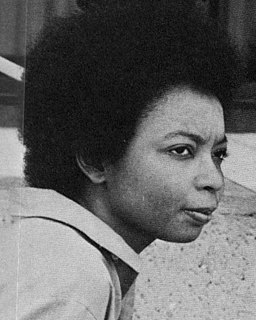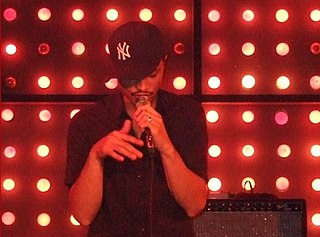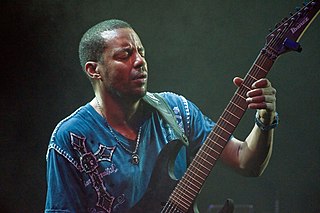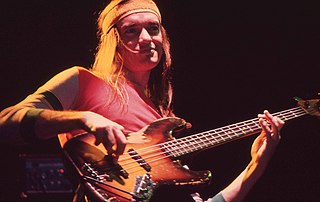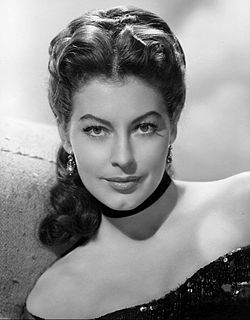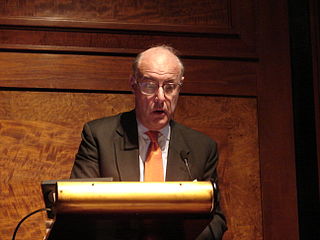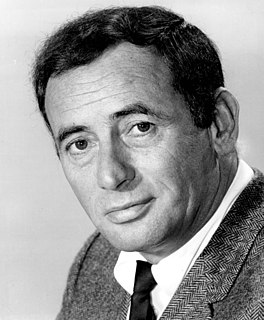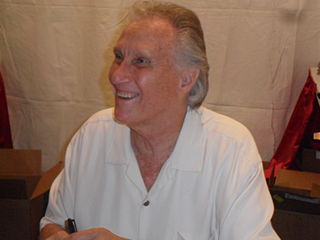Top 326 Sinatra Quotes & Sayings - Page 6
Explore popular Sinatra quotes.
Last updated on April 19, 2025.
I don't like that word 'discovery.' ... Sinatra was the first one to call Ray Charles a genius, he spoke of 'the genius of Ray Charles.' And after that everybody called him a genius. They didn't call him a genius before that though. He was a genius but they didn't call him that. ... If a white man hadn't told them, they wouldn't've seen it. ... Like, you know, they say Columbus discovered America, he didn't discover America.
i get a little romantic about the old Empire State. Just looking at it makes me want to play some Frank Sinatra tunes and sway a little. I have a crush on a building. I'd been in there several times but never to work. I always knew there were offices in there but the face never penetrated, really. You don't work in the Empire State Building. You propose in the Empire State Building. You sneak a flask up there and raise a toast to the whole city of New York.
That story about the two women in my life is - a lot of people get upset, a lot of people question it. Steven Soderbergh said to me, "The story of your life is incredible. The real story of your life that's interesting, more interesting than all the other stuff - the franchises, the movies, the songs, Elvis Presley, Frank Sinatra - the real thing that's interesting and unbelievable is the relationship with these two women. And if you're willing to put that out there, you know then, you're going to have a great movie. Because that's the movie."
It is jazz music that called me to be a musician and I have always sang the songs that moved me the most. Singers, like Frank Sinatra and myself, we interpret the songs that we like. Not unlike a Shakespearean actor that goes back to the greatest words ever written, we go back to the greatest songs.
Well sometimes I do not listen to music. But when I do it could range from Frank Sinatra to Copeland. I spend a great deal of time playing the piano because it really is my salvation at times. But I am perfectly happy just going on a long bike ride that takes many days to complete and staying away from music for a bit. It always feels so fresh when you return to the instrument with a different observation of things than when you were last there.
I could turn on my radio in the morning when I was getting dressed for school and hear Frank Sinatra and Duke Ellington and Benny Goodman and think this is the music. Now that music is art. Ellington is art. At that time it was just what you heard on the radio. Cole Porter was just a guy who wrote pretty songs and Billie Holliday would sing them.
Once upon a time there was a girl who discovered that if she played a certain tune on a jade flute, she could summon up jade gnomes, a peculiar, harmless, but rather creepy looking spirit of the underground. The fact is that many of us have talents like this, but generally never discover them due to lack of opportunity, since one can go one's entire life without playing a jade flute, or discovering that one can speak the language of ground sloths, or turning fruitcake into solid tungsten by singing Sinatra tunes to it under a quarter moon.
I'm not a star. I'll never be a Frank Sinatra or Elvis Presley or a Ray Charles. I'm just an imitator, man. I'm doing a very bad imitation on the bass of Jerry Jemmott, Bernard Odum, Jimmy Fielder, Jimmy Blanton, Igor Stravinsky, Jimi Hendrix, John Coltrane, James Brown, Charlie Parker... the cats, man. I'm just backing up the cats.
Never had a hit movie or hit TV show or hit record. I just had visions of doing the best quality of music. Now there is a place for me because Frank Sinatra is dead. They want me to play the music. If it wasn't for that, I wouldn't be noticed. The only satisfaction is that I do what I do well. That's the only lawful satisfaction.
I dealt with men who had tempers, and who could get violent-Lord knows how I had to defend myself against Howard Hughes and Frank Sinatra, and from Artie Shaw's verbal abuse. But George [C. Scott] was a different category of animal when he got drunk. He'd break into my hotel room, which he did in Italy, London and at the Beverly Hills Hotel, attack me to where I was frightened for my life, and scream, 'Why won't you marry me?' Well, I would never marry a man who couldn't control his liquor. Me, I'm a happy drunk. I laugh, I dance. I certainly don't break bottles and threaten to kill.
When I came on board, it was halfway through his [Frank Sinatra] 72nd year, and when he did his last show he was gaining on 80. He knew it, the audience knew it, and there was never any attempt to conceal such a thing. His vision wasn't what it had once been. His hearing wasn't. His memory was fading. He knew these things. He was very much in need of help, and I was so happy to be able, in a small way, to render that help.
I've never heard of any one single artist being the subject in an ongoing series of radio programs for decades. Bearing this in mind, that's the kind of thing Frank Sinatra brings out in his audience, his followers. It's personally satisfying to me because his music by and large was the greatest quality of lyrics, melody, orchestration and, of course, his magnificent approach to telling a story.
Kitty Kelley's method, already perfected in her unauthorised and unflattering biographies of Frank Sinatra and Nancy Reagan, is to write bestsellers that take what she describes as an 'unblinking look' at their subjects - which might, of course, mean that her eyes are permanently open or permanently closed... the result is a work so bad that Britons cannot realise how fortunate they are in being unable to buy it. The great mistake with this book is not that it has been published in Britain, but that it has actually been published anywhere else.
Indeed we have souls. And if a person is religious, I think it's good, it helps you a bit. But if you're not, at least you can have the sense that there is a condition inside you which looks at the stars with amazement and awe. That listens to water with a river flowing, or water falling in rain and is lifted up by that and listens to a wonderful singer, wonderful musicians, listens to maybe Duke Ellington or Frank Sinatra or listens to Odetta and Mary J. Blige. Yes, and thinks whoo! And thinks, yes, hmm, all right now. My soul has been washed. I feel better, I feel stronger.
As I look back on it now, I'm thinking of one very vital factor, that one factor being that I was afforded the luxury - the luxurious opportunity - of finally being able to put something back. As a child growing up, it was his [Frank Sinatra] efforts that put a roof over my head, food in my stomach, clothes on my back, and that got me an education and sent me to the doctor when I was sick. All those things a child could benefit from parent. I did not want to be in a position where all I had ever done was take, take, take, frankly.
One time we were having dinner and some guy came by and took a potato off of Frank Sinatra's plate. And Frank said, “Hey pal, are you hungry?” The guy says, “yeah.” Frank said, “Sit down.” And he gave him his dinner. I thought for sure there was gonna be trouble from the guys surrounding Frank, but Frank says, “Jeez, relax, the man's hungry.”
Frank [Sinatra] sang to you, not at you, like so many pop singers today. Even singers of standards. I never wanted to be a singer that sings at somebody. I've always wanted to sing to somebody. I would have gotten that subliminally from Frank many years ago. Hank Williams did that, too. He sang to you.
It's not like I'm the first man ever to do this, y'know? You gotta go back to Nat King Cole, Bing Crosby and Sammy Davis Jr. Those are people who've done music well and movies well, and y'know, Frank Sinatra and Elvis and all these dudes have made the transition. I don't know about Elvis, 'bout doin' 'em good, y'know? It's nothin' new.
I don't drink much anymore, but when I traveled with Frank Sinatra, God rest his soul, I used to drink like I could do it. He made it a test. In Vegas, the Rat Pack, which I was a little part of, drank all night and slept most of the day. Then, about 5 o'clock, we'd meet in the hotel steam room, lock the door, and steam our brains out.
People talk about Frank Sinatra all the time - and they should talk about Frank - but he had the greatest arrangers. They worked for him in a different kind of way than they worked for other people. They gave him arrangements that are just sublime on every level. And he, of course, could match that because he had this ability to get inside of the song in a sort of a conversational way. Frank sang to you, not at you, like so many pop singers today. Even singers of standards.
I remember Elvis as a young man hanging around the Sun Studios. Even then, I knew this kid had a tremendous talent. He was a dynamic young boy. His phraseology, his way of looking at a song, was as unique as Sinatra's. I was a tremendous fan, and had Elvis lived, there would have been no end to his inventiveness.
Phil Ramone and Quincy Jones were very close. Phil Ramone was one of the greatest record producers of all time. I don't know if they talk about him enough in the film, but he produced [Frank] Sinatra, Barbra Streisand, all of Billy Joel, Paul McCartney - Phil Ramone was one of the major record engineers and producers.
Paul Simon once said that a songwriter's supreme challenge was being complex and simple at the same time-writing songs with lasting depth that are also simple enough to be memorable. Jimmy Van Heusen was a master at this kind of song. His music was complex, with deeply rich chord changes any jazzman can embrace, but also possessed catchy, crystalline melodies of exceeding sing-ability. His songs were meant to be sung, not just listened to, and they were sung by the best, with Frank Sinatra and Bing Crosby at the top of that list.
Every time a new rock singer comes out they don't say, 'Are you the new John Lennon?' Every time a new rapper comes out, it's not, 'Are you the new Dre?' I am never sure why this sort of genre, the categorization is so strong. I have not earned the right to be called the young Sinatra, but give me time.
